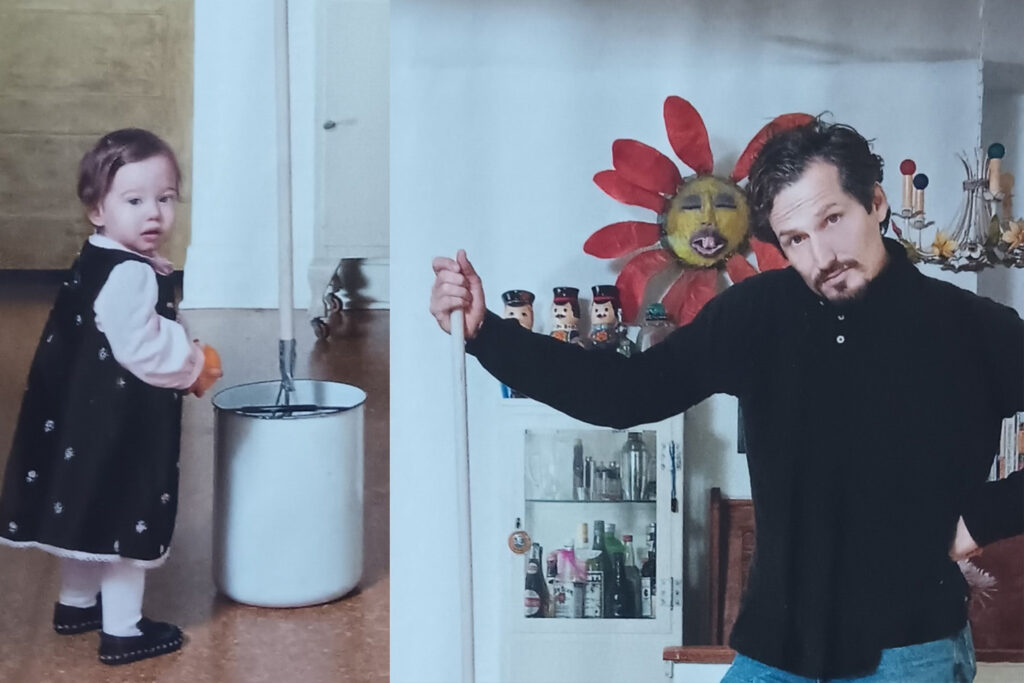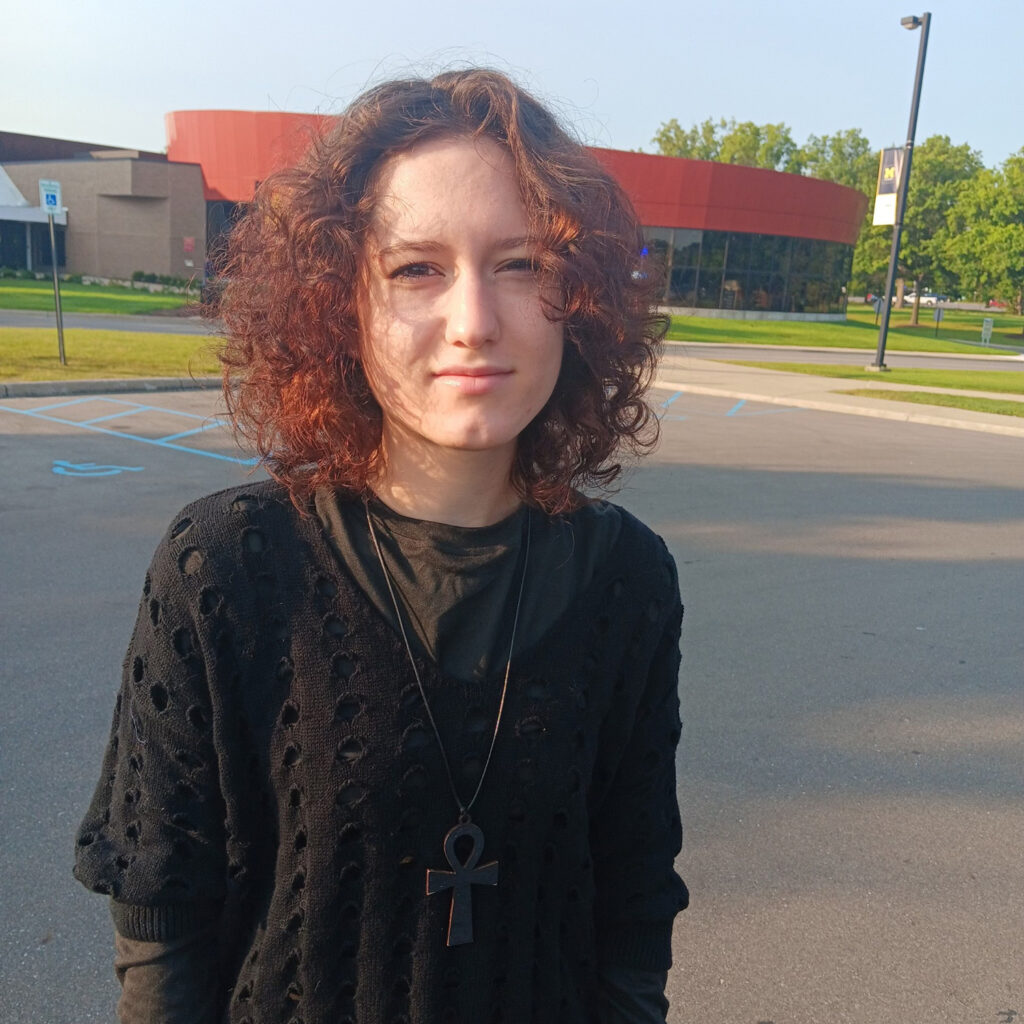My Last Drop-Off

“Didn’t I tell you to fill this up?” I said to my daughter after inspecting the fuel gauge.
“Am I driving?” she asked in a panic.
“Of course you’re driving, I’m just coming along to make sure you know how to get there.”
It was my daughter Claudette’s first day of college. She’ll be commuting to U-M Dearborn. She has to take Eight Mile Road and then merge onto the Southfield Freeway. It’s become a glorified dragstrip. Since Covid, people rip through it like Big Daddy Don Garlits on the quarter-mile. There are few state troopers out there anymore, and so no one left to tell people no.
My daughter is young, 17, and could still be in high school. She will attend university without having to be swallowed by the gargantuan maw of campus life. She’s not emotionally ready for that and has decided to meet the adult world half-way.

Still, I can’t escape the melancholy that my baby has somehow moved along. All the way down into the basement. She now lives there, among the plumbing pipes and spiders, far away from my wife and me. My wife and I are empty nesters now, though our bird lives the next branch over.
My daughter’s logic and self-awareness make me proud. The savings in tuition doesn’t hurt either.
We piled into the car. I’d promised myself that I wouldn’t nag, but the craggy old man had come along for the ride, anyway.
“Adjust your rear view,” I ordered. “Pull your seat forward. Put on the defrost. Check your blind spots.”
We had yet to pull out of the driveway.
The commute down the Southfield was smooth and uneventful enough, until we approached the interchange at I-96. “Slow down,” I instructed. “Here’s where the A-holes create the danger.”
And just then, as if I’d ordered them up from central casting, two loons—one in a Jeep, one in a Toyota sedan—simultaneously decided at the last second that they didn’t want to head toward Ann Arbor. In a single file of Mad Maxian monomania, they ripped through the traffic barrels, struck the curb, went slightly airborne, then righted themselves and ripped down the freeway toward Dearborn.
“Geez, pop. You were right.”
“Your old man ain’t such a ninny, is he?”
Until he was. A mile or so southbound, tail lights lit up in a great orgy of panic. The freeway up ahead was closed down to a single lane. But my daughter was not slowing down.
“Stop!” I shrieked. “Stop!” I hadn’t screamed like that since a mouse popped out of a sack of corn feed and scurried down my leg.
“Take it easy, Pops. I know how to drive. You taught me. Remember?”
“Yes, I remember. That’s what worries me.”
We laughed a real laugh all the way to Joy Road.
“Where am I getting off?” she wondered. We’d practiced all summer, but I knew she’d forget. I’m her father, after all. I’m glad I’d come.
Up and off Exit 7. We arrived on campus an hour early. I gave her some just-in-case money to hide in a seat fold. Her mother texted wanting a first-day-of-school pic.
“Aw Pops. I’m supposed to be an adult now.”
“Then be an adult and give your mother a picture.”
Claudette stood there stiffly, hang-dogged like an autumn scarecrow. It was the very same, I remembered, when we went to Girl Scout camp all those years ago. My eyes began to sting from the memory.
“Want me to drop you at the bus depot, Pops?” she asked after the snap. “I’ve got time.”
“Yes, please.”
I had no idea where the depot was located or what bus I was to catch downtown to my job as a maintenance man.
We found the John D. Dingell Transit Center without event. She dropped me at the curb, then drove off into her future, stealing a glimpse of me through her rearview mirror.
The center is a massive building, clean and all, but empty. I wondered if they will teach my daughter about unnecessary government pork projects and municipal budgeting over there at the university.
I walked to the bus shanties. A woman named Tracey Pugh recognized me. She was drinking a can of Red Bull through a straw.
“What are you doing here?” She seemed genuinely surprised that a reporter would dirty his loafers and be caught out on a public bus. I explained the morning.
“I remember those days,” she said in a heave of nostalgia. “The kid’s first day of kindergarten, all of it.”
Tracy told me she had just received news that she was going to be a grandmother. Again. The thought of it left her depressed. Strike that—anxious.
“The world’s such a mess,” she confided. “I’m worried that I won’t be there to protect him.”
“You can only do your best,” I agreed. “Then you have to leave them to live their dreams. It’s only fair.”
“You know what my dream is?” she offered. She pointed toward the Amtrak siding. “One day, I would like to get on that train, ride to Chicago, get a slice of pizza, and come back. Wouldn’t that be great? Just for a day. Just for a slice.”
I told her I had, in fact, made that trip with my daughter some years ago. Considering Tracy’s anxiety, I didn’t have the heart to tell her the the return trip took more than eight hours. I wondered if they would teach my daughter about the abysmal state of public transportation over there at the university.
“Really?” Tracey asked with marvel. “And how was the pizza?”
Again, I didn’t have the heart to tell her. Who am I to dump on someone’s dreams?
And with that, the 261 coach heading downtown arrived precisely on time.
Charlie LeDuff is a reporter educated in public schools.